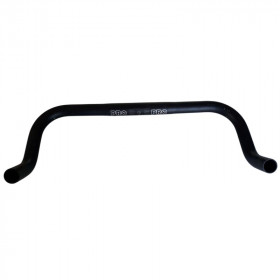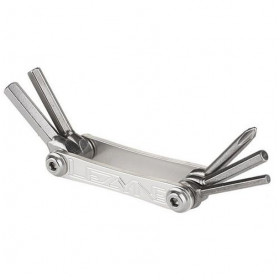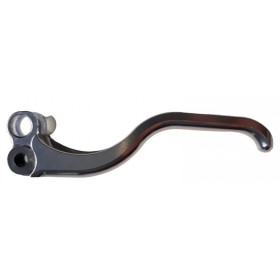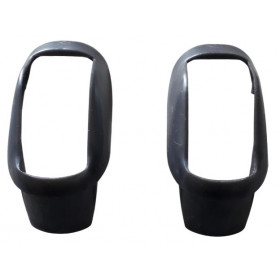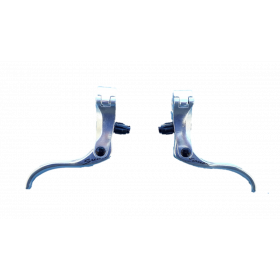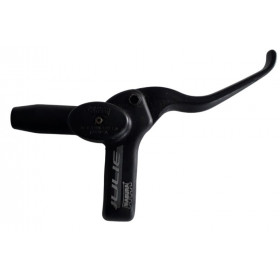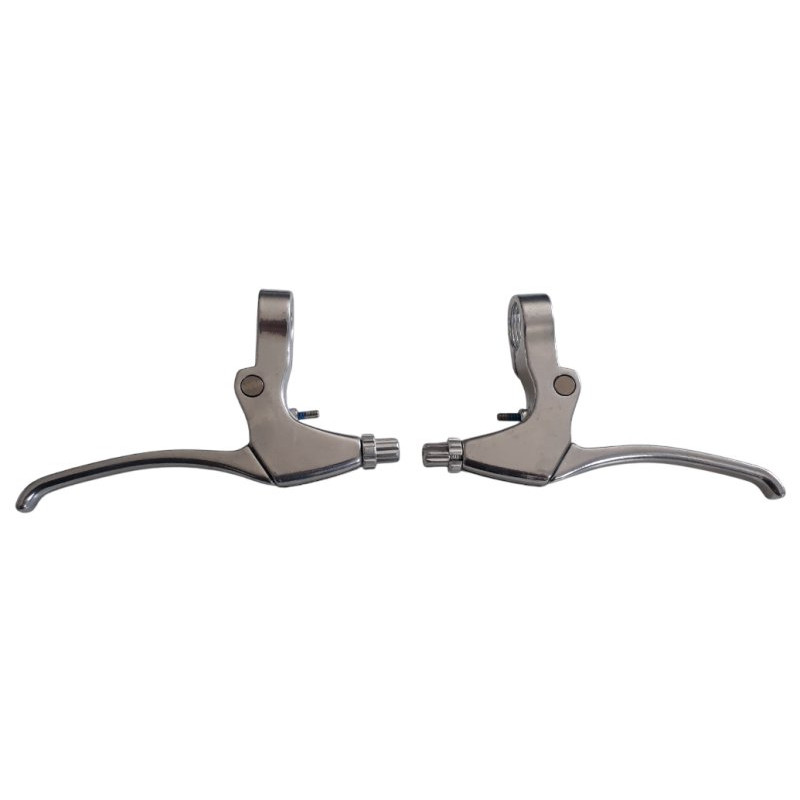 zoom_in
zoom_in
Bicycle brake handles
- 5 Items
- New

€6.99 VAT included
How to choose the right bike brake levers: features, specifics & tips
When it comes to bike safety, the braking system is one of the most important components. Often overlooked, bike brake levers play a key role in controlling your ride. Whether you're on a road bike, a mountain bike, or a city bike, choosing the right brake levers improves both comfort and braking performance.
What are bike brake levers for ?
Brake levers are the part of the brake system you operate with your hands. Mounted on the handlebar, they transmit the force applied by the rider to the brake calipers or disc brakes via a cable or a hydraulic line. They are essential for delivering precise, fast, and effective braking.
Different types of bike brake levers
There are several types of brake levers, each suited to a specific bike and braking system:
1. Mechanical brake levers
These operate a brake cable that pulls the caliper. They're easy to maintain and compatible with most city bikes, traditional MTBs, and touring bikes.
2. Hydraulic brake levers
Connected to a hydraulic braking system, they provide more powerful and progressive braking. These are common on enduro mountain bikes, downhill bikes, and increasingly on electric bikes.
3. Road and Integrated Brake Levers
On road bikes, brake levers are often integrated with gear shifters (STI-type). They must be ergonomic for long-distance riding and offer reliable braking even from the drops.
Key features to consider
When choosing your bike brake levers, consider the following:
-
Compatibility: make sure the levers match your brake type (V-brake, cantilever, disc, etc.) and your handlebar diameter.
-
Ergonomics: levers should provide a secure grip, especially in wet conditions or off-road riding.
-
Materials: aluminum is lightweight and durable; carbon is used for high-end models; reinforced plastic suits recreational use.
-
Reach adjustment: allows you to fine-tune the distance between the lever and the grip for hand size comfort.
-
Design and weight: for performance riders, weight and aerodynamic design are important factors.
When should you replace your brake levers ?
Worn or damaged levers can reduce your braking performance. Here are signs it’s time to replace them:
-
Excessive play in the lever
-
Spongy feel or overly long lever travel
-
Creaking sounds or poor return after braking
-
Visible wear or damaged mechanism
Final thoughts
Bike brake levers are more than just simple components – they are the direct link between your hands and your braking power. Choosing the right levers for your riding style, braking system, and hand size ensures a safe and comfortable riding experience.
Whether you're commuting, mountain biking, or road cycling, never underestimate the importance of a high-quality braking setup. A good pair of brake levers means safer rides—and greater peace of mind.


